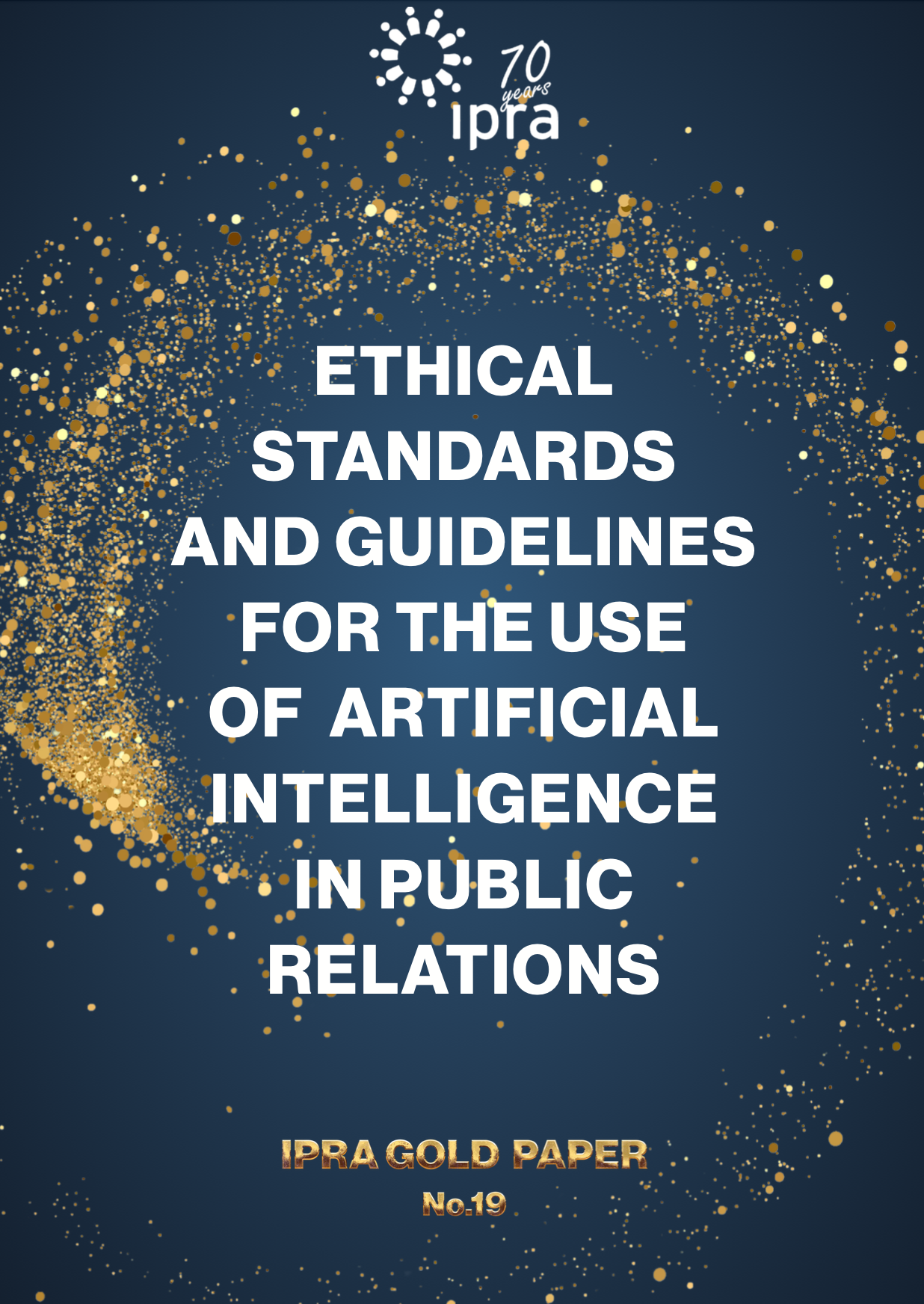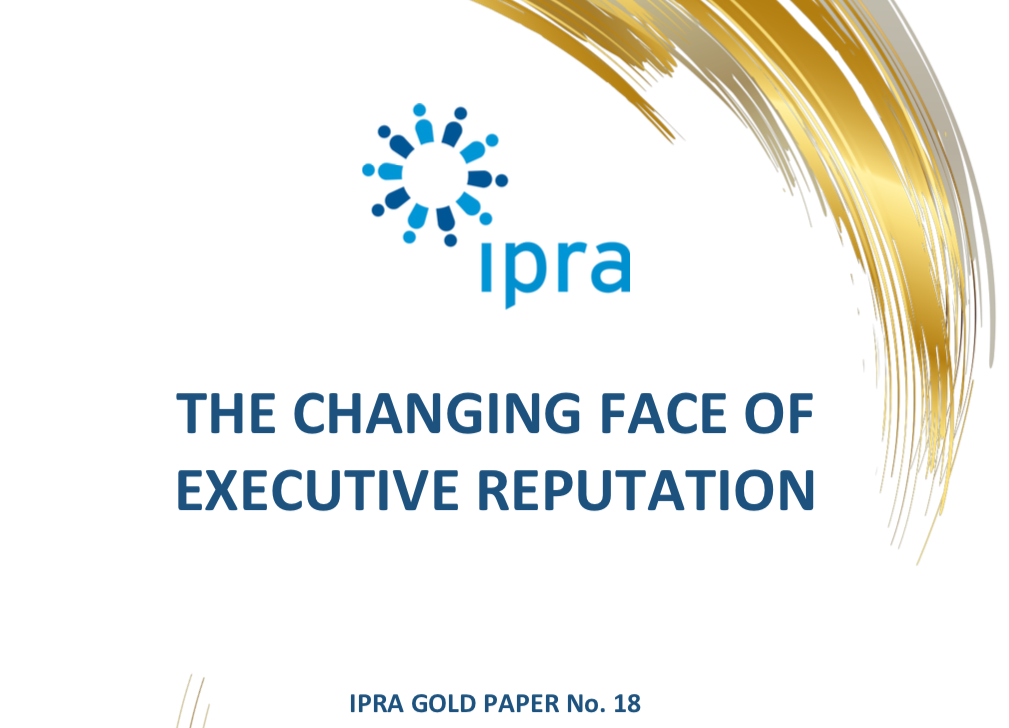
Gold Papers
Background
Gold Papers are one expression of IPRA’s mission for the intellectual leadership of the profession and are authored by recognised specialists, at the invitation of the IPRA Board. The Papers form a series that explores significant topics of interest to public relations professionals in depth and with rigour. That series began in 1973 with Herbert M. Lloyd’s Standards and Ethics of Public Relations Practice and has over the years thoughtfully addressed the most important challenges communicators face.Gold Paper no. 19:
Ethical standards and guidelines for the use of Artificial Intelligence in public relations
Throughout its existence, IPRA has sought to provide intellectual leadership for the public relations profession. A key aspect of this has been the development of Codes and Guidelines aimed at establishing an ethical framework for the profession's activities. Upon joining IPRA, all members commit to upholding the Code, benefiting from the ethical environment they foster. For the past fifty years, IPRA has supplemented its Codes and Guidelines with occasional Gold Papers.
From the outset, IPRA recognized that information and communication technology is a powerful tool. Social technology is capable of benefiting or harming humanity: it can bring personal, organizational, and societal good or ill. It is up to us to determine how to understand and use it, which is why ethical standards are essential to guide our behaviour.
In response to the emergence and widespread adoption of generative artificial intelligence in the 2020s, IPRA published the IPRA AI and PR Guidelines in October 2023. Additionally, it established a joint committee of academics and practitioners to outline Ethical standards and guidelines for the use of Artificial Intelligence in public relations. In July 2024, IPRA launched an AI Chapter.
This Gold Paper provides a snapshot of the situation in 2024 and outlines proposals for proactive and responsible behaviour in public relations. The authors would like to express their appreciation and gratitude to the respondents who participated in the Delphi study and contributed numerous ideas, many of which are featured in this Gold Paper.
Gold Paper no. 18:
The Changing Face of Executive Reputation
The Changing Face of Executive Reputation is co-authored by Bant Breen and Enric Ordeix. In the summer of 2018, Qnary and the BE Center for Global Communications (a shared initiative between Emerson College and The Blanquerna School of Communications) surveyed 6,200 full-time employees across the US, UK, China, Italy, Spain and Australia. The results of that survey provided the foundation for the Gold Paper’s exploration of C-suite reputation and its incontrovertible conclusion that the online reputations of senior C-level executives have become a significant influence on the perception of organisations.
Latest Ipra ITL:

ITL #634 The strategic role of communication in enhancing a company’s ESG profile: the Amplifon case

ITL #633 The mesh revolution: a new model for PR in an era of industry contraction

ITL #632 Accelerating legal encroachment: are lawyers taking over the lead from crisis managers?

ITL #631 Responsible guardians: nurturing the NextGen of human intelligence over the artificial






